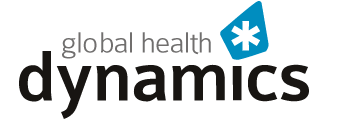
Who we work with
Global Health Dynamics works with strategic global partners to provide information and influence for the world health community. Through the medium of online and hard copy publications, and media partnerships, Global Health Dynamics brings together policymakers, healthcare professionals, NGOs, and the private sector to collaborate on key healthcare issues such as cancer and antimicrobial resistance, to share knowledge and examine how practical improvements can be advanced at the highest levels and on the ground.
Tim Probart (left), Publisher of Cancer Control, and Mark Lodge (right), Commissioning Editor, present HRH Princess Dina Mired of Jordan (centre), then President of the UICC, with a copy of the Cancer Control to which she contributed an article, at London Global Cancer Week

Global Health Dynamics works with many organizations and individual contributors to achieve its objectives:
Intergovernmental institutions including:
World Health Organization; World Health Organization Regional and Country Offices; The Commonwealth; The Commonwealth Pharmacists’ Association, London, UK; European Medicines Agency; GAVI; INCA; Organization for Animal Health; La Francophonie; International Agency for Research on Cancer; International Atomic Energy Agency; International Telecommunications Union; PACT Programme; Pan American Health Organization; UNCTD; World Bank
National institutions including:
Austrian Federal Ministry of Health; Biomedical Advanced Research and Development Authority, USA; Cancer Association of South Africa; Cancer Institute, Romania; Cancer Council, Australia; Council on Foreign Relations, USA; Department of Health, UK; Department of Health, South Africa; Federal Ministry of Health, Germany; Hellenic Centre for Disease Control and Prevention, Greece; Indonesian Anyo Foundation; National Cancer Society, Malaysia; Centers for Disease Control and Prevention, USA; Center for Disease Dynamics, Economics and Policy, USA; National Cancer Institute, Argentina; National Cancer Institute, USA; National Cancer Control Program, Ministry of Health, Kenya; National Centre for Global Health and Hospital Medicine, Japan; National Institute for Cancer Control, Vietnam; National Health Institute, Portugal; Ministry of Health, Algeria; Ministry of Food and Agriculture, France; Ministry of Health, Egypt; Ministry of Health, France; Ministry of Health, India; Ministry of Health, Kenya; Ministry of Health, Palestine; Ministry of Health, Labour and Welfare, Japan; Ministry of Heath and Public Hygiene, Ivory Coast; Ministry of National Health Services, Pakistan; Ministry of Public Health, Cuba; Ministry of Health, Malaysia; Ministry of Health, Senegal; UK Parliament; Royal College of Physicians, UK; US Agency for International Development; Wellcome Foundations, UK
International NGOs including:
Academic and medical institutions including:
Private sector organizations including:
Amgen; Aviva; Aga Healthcare; AstraZeneca; Becton, Dickinson and Company; Biomerieux; Cepheid; Dubai Health Authority; e-Cancer; Economist Intelligence Unit; Elekta; Hindustan Syringes and Medical Devices, India; Institut Merieux; Johns Hopkins Medicine; Johnson & Johnson; Longitude Prize; MedTech Europe; Public Health Consulting Georgia, USA; Novartis; Roche; Sandoz; University Research Co LLC; Sanofi; Varian Medical Systems; Visiomed Group International
Partnering organizations







